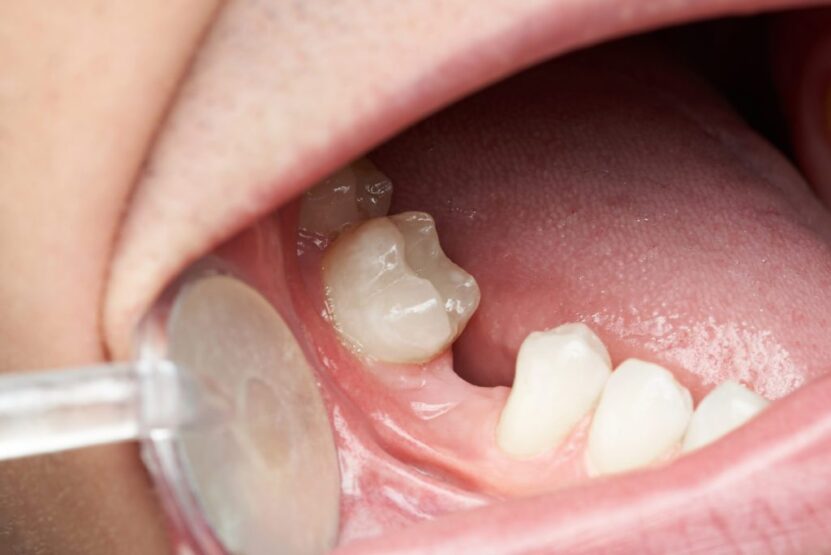Tooth loss, whether due to injury, decay, gum disease, or age, can have profound effects on an individual’s confidence, self-esteem, and overall oral health. However, with modern dental advancements, there are numerous ways to cope with this issue and restore a beautiful smile. This article dives into the various aspects of tooth loss and explores implant solutions that have revolutionized dental care.
Tooth Loss

Causes Tooth loss can stem from multiple sources:
- Tooth Decay: Poor oral hygiene can lead to cavities. If left untreated, decay can destroy tooth structure.
- Periodontal Disease: Infections of the structures around teeth can cause them to become loose and eventually fall out.
- Trauma: Accidents or sports-related injuries can lead to tooth loss.
- Aging: As we age, tooth loss can naturally occur, especially if oral health wasn’t prioritized earlier in life.
Remember that dental implants can replace a missing tooth as explained by experts from EZobozdravnik.
Impacts The consequences of tooth loss include:
- Aesthetic Concerns: Gaps in the smile can affect self-confidence.
- Speech Difficulties: Missing teeth can cause pronunciation challenges.
- Eating Issues: Chewing becomes harder, affecting digestion and nutrition.
- Bone Loss: Lack of tooth root stimulation can lead to jawbone deterioration.
Coping Mechanisms
Emotional Aspects Losing a tooth or multiple teeth can be emotionally challenging. It’s essential to:
- Acceptance: Acknowledge your feelings and allow yourself to grieve.
- Seek Support: Discuss your feelings with loved ones or a therapist.
- Positive Affirmation: Focus on your overall health and the possibility of solutions.
Practical Strategies There are immediate steps to take if you lose a tooth:
- Preservation: If it’s due to trauma, keep the tooth moist, preferably in milk or a tooth preservation kit, and visit a dentist immediately.
- Temporary Solutions: Dentists can provide temporary prosthetics or fillers to fill the gap, ensuring that aesthetics and function are minimally affected.
Delving into Dental Implants

What are Dental Implants? Dental implants are titanium posts surgically placed into the jawbone where teeth are missing. These posts act as tooth root substitutes and provide a solid foundation for the replacement tooth.
Benefits Implants offer:
- Durability: With proper care, they can last a lifetime.
- Aesthetics: They look and feel like your own teeth.
- Improved Function: Enhanced chewing and speech capabilities.
- Bone Preservation: They prevent jawbone loss by providing root-like stimulation.
The Implant Procedure The process involves several steps:
- Consultation: Assessing suitability for implants.
- Surgical Insertion: The implant is placed into the jawbone.
- Osseointegration: The bone grows around the implant, securing it.
- Attachment of the Prosthesis: A crown, bridge, or denture is attached to the implant.
Alternative Solutions
While dental implants are excellent, they aren’t the only solution. Alternatives include:
- Bridges: These replace missing teeth by anchoring onto adjacent teeth.
- Dentures: These are removable and replace several missing teeth or full arches.
- Partial Dentures: Ideal for those missing a few teeth in one area.
Caring for Dental Implants
Implants require diligent care:
- Regular Brushing: At least twice daily to remove plaque.
- Flossing: Ensure the spaces between the implant and natural teeth are clean.
- Regular Dental Check-ups: Monitor the implant’s condition and overall oral health.
Financial Aspects
Costs The costs can vary depending on:
- Location: Prices differ based on the region or country.
- The Extent of Procedure: Single tooth vs. multiple teeth replacement.
- Additional Treatments: Bone grafts or sinus lifts might increase the cost.
Insurance

Navigating the maze of dental insurance can sometimes be a daunting task, especially when it comes to specialized treatments like dental implants. However, the benefits can be substantial if you know how to tap into them.
- Levels of Coverage: While traditional dental insurance plans may have previously excluded dental implants, many modern plans now offer partial coverage. This can range from covering just the diagnostic procedures to sometimes even including aspects of the surgery or the prosthetics.
- Understanding the Fine Print: It’s vital to understand the specifics of your plan. Some policies might cover the surgical procedure but not the implant crown or vice versa. Others might have waiting periods for such procedures or specific clauses about replacements of previously extracted teeth.
- Pre-authorization: Before undergoing any procedure, it’s wise to get a pre-authorization or pre-determination of benefits from your insurance company. This document will give you a clearer idea of what the insurance company will cover and what you might need to pay out-of-pocket.
- Health Savings and Flex Spending: Apart from insurance, remember to utilize Health Savings Accounts (HSA) or Flexible Spending Accounts (FSA), which allow you to set aside pre-tax money for medical expenses, including dental implants in many cases.
Payment Plans
Recognizing the financial challenges some patients face, many dental clinics now offer flexible payment solutions to make dental implants more accessible.
- In-house Financing: Some dental clinics have their in-house financing options. These might include no-interest plans, low monthly installment options, or extended payment terms.
- Third-party Financing: There are companies specializing in healthcare financing, like CareCredit or LendingClub, which offer loan options for dental procedures. These often come with promotional periods with low or zero interest.
- Sliding Scale Payments: For individuals with lower incomes, some clinics might offer sliding scale payments, where the fee is adjusted based on the patient’s ability to pay.
- Early Payment Discounts: In scenarios where you’re willing and able to pay upfront, some clinics might offer a discount for early full payments, thus reducing the overall cost.
FAQs
Can anyone get dental implants, or are there certain criteria to meet?
While dental implants are suitable for most people, there are certain criteria to consider. Ideally, candidates should have good overall health, sufficient jawbone density, and healthy gums. Conditions like uncontrolled diabetes, cancer, or untreated gum disease may delay or alter the treatment plan. Always consult with a dentist to determine your eligibility.
How long does the entire dental implant procedure usually take?
The dental implant procedure can vary in duration based on individual needs. Typically, from the initial consultation to the final placement of the prosthesis, it can range from several months to over a year. Factors affecting the timeline include the need for bone grafts, the healing process, and the type of implant procedure chosen.
Is the dental implant procedure painful?
Most patients report minimal discomfort during the procedure, often comparing it to a tooth extraction. Local anesthesia is used during the surgery, and post-operative discomfort can generally be managed with over-the-counter pain relievers and following the dentist’s aftercare instructions.
How do I know if I’m experiencing a complication after receiving an implant?
While complications are rare, signs might include prolonged pain that doesn’t diminish after a few days, swelling that worsens, unexpected bleeding, or the implant feeling loose. If you notice any of these symptoms or have concerns, contact your dentist immediately.
Will my dental implants match the color of my natural teeth?
Absolutely! The prosthetic tooth (or crown) placed on the implant is custom-made to match the color, shape, and size of your natural teeth. Your dentist will ensure it blends seamlessly with your smile.
Can dental implants get cavities?
No, dental implants themselves cannot get cavities since they’re made of titanium and ceramic or porcelain materials. However, it’s essential to maintain good oral hygiene practices to ensure the health of the surrounding gums and prevent gum disease or bone loss around the implant.
Conclusion

Tooth loss, while challenging, is not the end of a radiant smile. With dental implants and other solutions, it’s possible to regain not only the aesthetics but also the function of a natural tooth.
By understanding the benefits, procedure, and caring methods, anyone can make an informed decision about their oral health’s future. Whether choosing implants or another route, the key lies in taking proactive steps towards a healthier, brighter smile.
